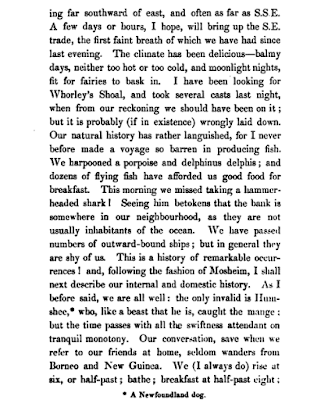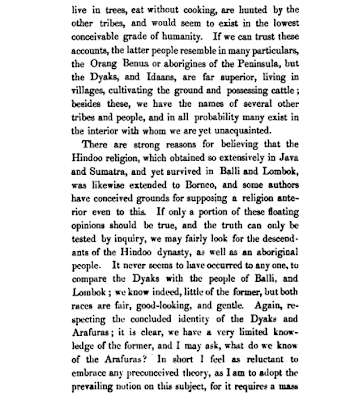Saturday, 13 August 2016
Friday, 12 August 2016
Thursday, 4 August 2016
Petronas - 100% owned by Sarawakians.
On 3rd August 2016, the Suarah Petroleum Group’s (SPG) SPG president Hamin Yusuf was quoted as saying the majority of senior jobs in Petronas are filled by non-Sarawakians and there is a continuous influx of Malayans filling the lower level jobs. His concern was further exacerbate on the abolishment of 29 permanent positions that resulted in the retrenchment of 13 experienced staff from Sarawak by Petronas in its upstream restructuring exercise in Sarawak.
It would be in the interest of all people to understand the constitutional breached of rights on this matter concerning the people of Sarawak to ensure educated insights so that the right implementation of rectification can be ensue to safeguard Sarawak at all costs.
Let us refer to the IGC Report which outline the formal and documented agreement for the special interests of Sarawak. In Chapter III of the Proposed Constitutional Arrangements, the special interests of Sarawak regarding control of immigration was being outlined in paragraph 16 in details.
In paragraph 16 (g), the following arrangements should apply: -
(g) the Federation Government should give an assurance that labour for federal projects in the Borneo States will not be recruited from outside the State if adequate local labour is available and that it is not the intention of the Federal Government in its control of immigration to hinder the recruitment of persons from outside Malaysia as experts or technical advisers or for the purpose of employment by the Governments of the Borneo States.
It was clearly set out in the IGC Report, paragraph 16 (g) that the labour for the jobs and posts in Petronas located in Sarawak territorial waters will be given to Sarawakians as an utmost priority. The jobs and posts at all level must be filled by Sarawakians and we all know that adequate local labour is more than enough to be recruited. So, there should be no quota system for Sarawakians to filled the jobs in Petronas because as soon as the adequate labour is available, the jobs and posts will be filled by Sarawakians immediately. This mean, all the jobs and posts in the end will be filled by Sarawakians at all level, at the rate of 100%! This is our rights and agreed between the Governments concerned.
If the situation in Petronas was not being rectified and being address properly, Sarawak Government can revert back the power over External affairs,etc* back to the Sarawak Government.
In Annex A, the External affairs,etc* was the responsibilities of the Federal Government but subject to the undertaking on Immigration set out in paragraph 16 of the Report. However, if the Federal Government FAILED to undertake their assurances and undertaking on Immigration as being set out in paragraph 16, the Sarawak Government constitutionally can take over the External affairs, etc* responsibilities from the Federal Government and the power therein will belong to the Sarawak Government until the Sarawak Government give a consent to delegate the power back to the Federal Government and again based on the new conditions given through the new formal agreement (paragraph 16 (c)).
It is up to our lawmakers to safeguards Sarawakian rights to ensure 100% jobs and posts in Petronas located in Sarawak to be filled by Sarawakians. Otherwise, the purpose of the creation of the Federation of Malaysia will be a complete failure if the breached is treated as a new norm.
IGC Report - Sarawak control of immigration
In the Chapter I (Introduction) of the Report of the Inter-Governmental Committee, 1962, the two Governments of the British and the Federation of Malaya decided to establish an Inter-Governmental Committee, on which the British, Malayan, North Borneo and Sarawak Governments would be represented. Its task was to work out the future constitutional arrangements, including safeguards for the special interests of Sarawak to cover various matters including control of immigration.
In Chapter III of the Proposed Constitutional Arrangements, the special interests of Sarawak regarding control of immigration was being outlined in paragraph 16 in details, where;
The following arrangements should apply: -
(a) immigration into Malaysia should remain on the Federal List, but legislation should be enacted by the Federal Parliament to ensure that, except as provided in sub paragraphs (f) (i) and (iv) below, entry into the Borneo States will require the approval of the State concerned ;
(b) the Federal Constitution should be amended to enable the Federal Parliament to legislate to control the movement of persons between the existing Federation and a new State or between new States on any ground (i.e. not merely the grounds specified in Article 9 (2));
(c) the Federal Government should undertake in the formal agreement for the establishment of Malaysia to pass before Malaysia Day a law coming into operation on Malaysia Day, the draft of which would be agreed by the Governments of the Borneo States and scheduled to the formal agreement and an outline of which is set out in paragraph (f) below;
(d) the Federal Constitution should be amended to provide that this law may not be amended or repealed in its application to a Borneo State without the concurrence of the Government of the State concerned;
(e) the Federal Constitution should be amended to provide that the provisions referred to in sub-paragraphs (b) and (d) may not be amended or repealed in their application to a Borneo State with out the concurrence of the Government of the State concerned;
(f) the law referred to in sub-paragraph (c) should contain provisions to secure that:-
(i) any person from outside Malaysia whose entry into a Borneo State the Government of that State considers is necessary for State purposes shall be given entry except in cases where the Federal Government, which will be consulted for this purpose, considers that it is desirable in the national interest that entry should be refused ;
(ii) subject to Article 9 (1) and to sub-paragraph (iv) below, admission to a Borneo State will not be granted to any other person or class of persons, whether from inside or outside Malaysia, without the approval of the Government of the State concerned ;
(iii) subject to Article 9 (1) and to sub-paragraph (iv) below, any person who is present in a Borneo State contrary to the provisions of sub-paragraph (ii) above or whose presence is otherwise unlawful whom the Government of the State wishes to be removed from the State, shall be so removed;
(iv) the provisions outlined in sub-paragraphs (ii) and (iii) above do not apply to members or officers of the Federal Government or any person or class of persons whose temporary presence in the State the Federal Government, after consultation with the State Government, considers is necessary in order to enable the Federal Government to carry out its constitutional and administrative responsibilities, or any citizen who enters for the purpose of exercising his right in connection with the functioning of parliamentary democracy in Malaysia or any part thereof, or any person who belongs to the State, i.e. who is a permanent resident of the State or who is a citizen of Malaysia on account of connection with the State;
(v) no person who resides temporarily in the State in accordance with sub-paragraph (iv) shall by reason of such residence be deemed to belong to the State or to be a citizen of Malaysia on account of connection with the State for the purposes of that sub-paragraph; and
(g) the Federation Government should give an assurance that labour for federal projects in the Borneo States will not be recruited from outside the State if adequate local labour is available and that it is not the intention of the Federal Government in its control of immigration to hinder the recruitment of persons from outside Malaysia as experts or technical advisers or for the purpose of employment by the Governments of the Borneo States.
In Chapter III of the Proposed Constitutional Arrangements, paragraph 30 (1) of the Constitutional safeguards mentioned again that the Federal Constitution should provide that certain provisions such as immigration relating to the Borneo States should not be amended or repealed without the concurrence of the Government of the State concerned.
In Annex A of the Legislative Lists, Administrative Arrangements and Assurances, generally accepted that in the early years after the establishment of Malaysia as few changes as possible should be made in the administrative arrangements in the Borneo States affecting the day to day lives of the people. During this period certain Federal powers should be delegated to the State Governments.
In Annex A, the External affairs,etc* was the responsibilities of the Federal Government but subject to the undertaking on Immigration set out in paragraph 16 of the Report.
*External affairs, including—
(a) Treaties, agreements and conventions with other countries and all matters which bring the Federation into relations with any other country;
(b) Implementation of treaties, agreements and conventions with other countries;
(c) Diplomatic, consular and trade representation;
(d) International organizations; participation in international bodies and implementation of decisions taken thereat;
(e) Extradition; fugitive offenders; admission into, and emigration and expulsion from, the Federation;
(f) Passports; visas; permits of entry or other certificates; quarantine;
(g) Foreign and extra-territorial jurisdiction; and
(h) Pilgrimages to places outside Malaysia.
In Annex A, if the Federal Government FAILED to undertake their assurances and undertaking on Immigration as being set out in paragraph 16, the Sarawak Government constitutionally can take over the External affairs, etc* responsibilities from the Federal Government and the power therein will belong to the Sarawak Government until the Sarawak Government give a consent to delegate the power back to the Federal Government and again based on the new conditions given through the new formal agreement (paragraph 16 (c)).
Subscribe to:
Comments (Atom)









































